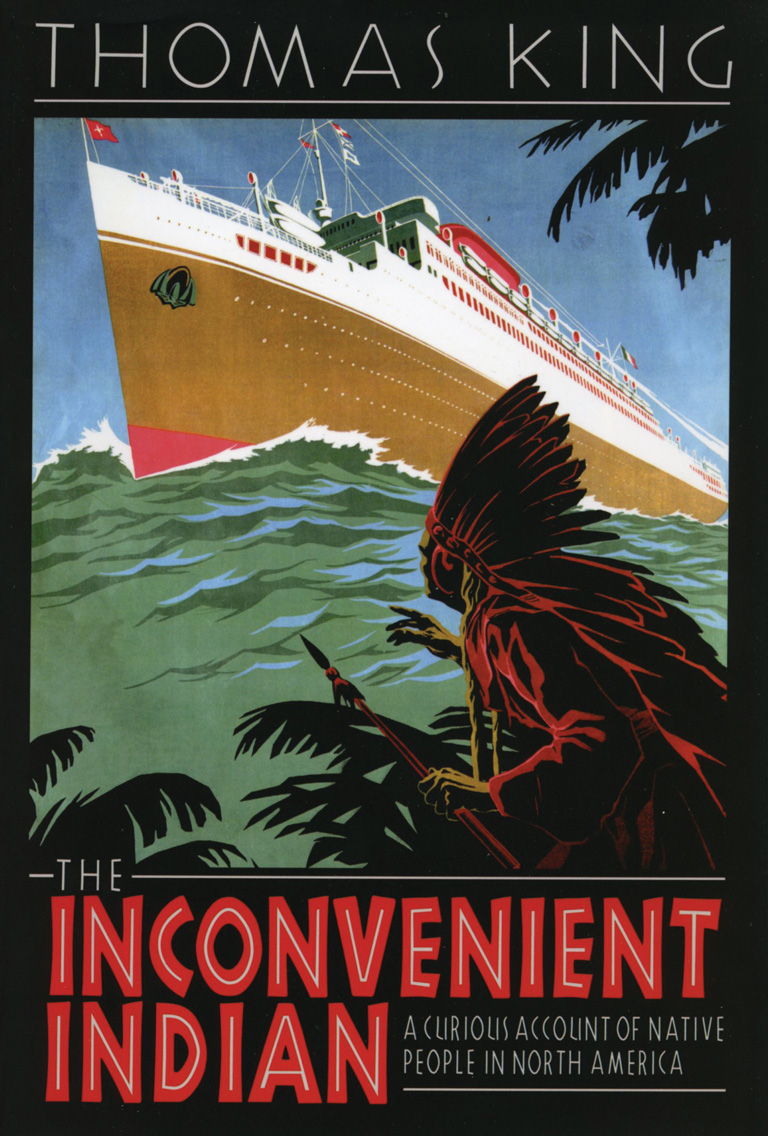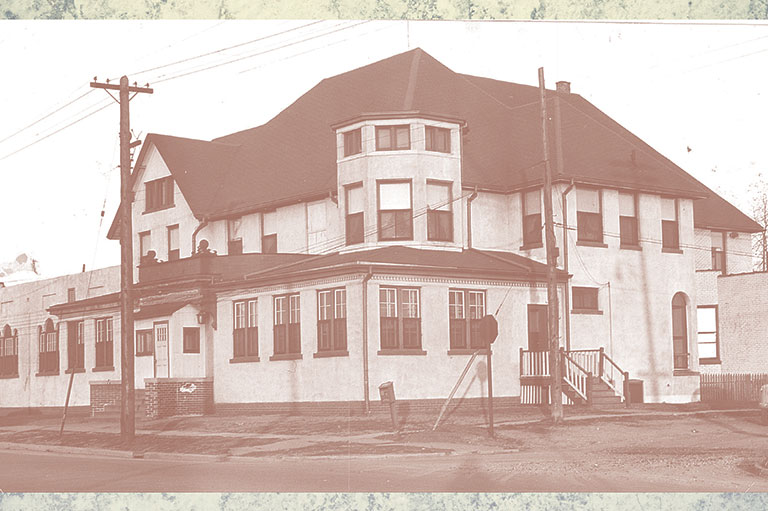The Inconvenient Indian

The Inconvenient Indian: A Curious Account Of Native People In North America
by Thomas King
Doubleday Canada
304 pages, $34.95
The Inconvenient Indian, Thomas King’s latest book, is a history of the relationship between North America’s Natives and non-Natives in the centuries since the peoples first met. Perhaps it’s better described as a subversion of history, as King builds a detailed case for how Natives have been, and continue to be, trampled by non-Aboriginal people.
The book is serious but immensely readable, for King (who is part Cherokee) delivers his message in an unconventional manner — with humour and biting, clever wit. Reading one page, my sides were sore with laughter; on the next, tears ran down my cheek.
King reviews a variety of Native-non-Native interactions, including treaties, removals, residential schools, and relocations, and he concludes that these were simply ways “to shuffle Indians out of the way of White settlement and economic development.” Along the way, he also serves up healthy dollops of political satire, mocking North America’s “military-political-corporate complex” and supply-side economics. Happily, his book, while thoroughly researched, is devoid of footnotes and academic obfuscations. It is a delightful read with a powerful message.
The Inconvenient Indian is personal — an expression of “a conversation King has been having with himself and others for most of his adult life” about what it means to be an Indian. He reinterprets numerous historical events, takes a detour into film and pop culture by describing Hollywood’s love affair with the Indian, and relates his own experiences with activism.
Most of all, he builds an impressive case regarding how Natives have been treated. King scathingly debunks the role given to Natives in contemporary history and convincingly shows that Natives have been duped, massacred, assimilated, and dealt with deceitfully since the start of colonization — and, he stresses, this continues today. Although The Inconvenient Indian takes a lighthearted approach, beneath the surface it seethes with rage.
King’s humour and easy-going style reminded me of Peter Gzowski, except that King is funnier. His approach is casual and endearing, and the reader can’t help but be drawn to and empathize with the author. This is good, for we all need to hear his message. The Inconvenient Indian should be required reading in every school and university in North America.
King’s work spans both the United States and Canada, a reflection of his own bi-nationality and also, as he states, because the border doesn’t exist for Aboriginal people. He was born in California to a Cherokee father and Greek mother, earned a Ph.D. in Native literature at the University of Utah, and has been living in Canada for the last twenty-five years. He wrote and played himself in CBC Radio’s popular series Dead Dog Café. Until his retirement in 2012, he was a professor of Native literature at the University of Guelph.
That King’s message resonates with the public was demonstrated on this book’s release, when it became the number one non-fiction bestseller in the country and remained on the bestseller list for more than twenty weeks.
To conclude the book, King offers a sliver of hope, describing treaties in Alaska and Nunavut and the creation of Gwaii Haanas National Park and Haida Heritage Site as, finally, recognizing Native sovereignty. But he is pessimistic about the future. Attitudes, both non-Native and Native, must change dramatically, he believes. King’s book will help generate much-needed dialogue.
Thomas King is far more than a good writer, storyteller, and academic. He has a dazzling intelligence that quickly sees through so many of the “accepted” truths people are repeatedly fed by the media, and he skewers these with delightful humour and self-deprecation. King is a warrior for his people.
Themes associated with this article
Advertisement




